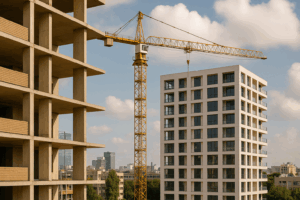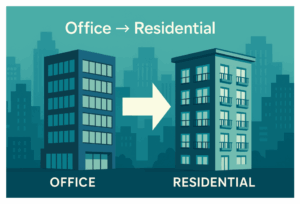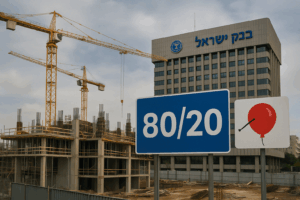Introduction:
In recent times, the Israeli economy and real estate market have undergone significant transformations, brought upon by a series of conflict-related events. Prior to the conflict, Israel’s economy showcased resilience and robust growth, with a commendable 3% growth rate, a stable debt-to-GDP ratio, low unemployment rates, and optimistic future growth forecasts. However, the aftermath of the conflict has presented a series of challenges that have reshaped the economic landscape and the real estate sector. This blog post delves into the pre and post-conflict economic conditions, inflation and public debt trends, economic recovery prospects, policy adjustments, and insights into the real estate market.Pre and Post-Conflict Economic Conditions:
Before the conflict, Israel’s economy was a beacon of stability and growth, characterized by a flourishing stock market, a stable currency, and consumer and business confidence at all-time highs. The country’s economy was on an upward trajectory with a growth rate of 3%, showcasing the vibrancy and resilience of its economic framework.
However, the post-conflict era has unveiled a different picture, marked by currency depreciation, fluctuations in the stock market, and a notable decline in consumer and business confidence. The immediate aftermath has also seen a tightening in labor markets, creating labor shortages that have further complicated the economic recovery process.
Inflation and Public Debt:
The inflation rate in Israel reached 3.7% in October 2023, momentarily stepping outside the desired target range. This development, although indicating a rise in prices, has shown signs of a downward trend, offering a glimmer of hope for stability in the near future. The public debt, however, is on a slight upward trajectory, with projections suggesting it could surpass 65% of GDP by 2025, underscoring the need for strategic fiscal management.
Economic Recovery and Global Context:
Despite the challenges, the Israeli economy is not in stasis. Projections for GDP growth stand at 2.3% in 2023, with an anticipated dip to 1.5% in 2024. However, the outlook for 2025 is more optimistic, with an expected recovery to 4.5% growth. This recovery is not isolated but intertwined with global economic trends, including the moderating global inflation and economic activity in major economies, which play a crucial role in shaping Israel’s economic trajectory.
Monetary and Fiscal Policy Adjustments:
In response to the evolving economic landscape, Israel’s Monetary Committee has taken decisive action by reducing the interest rate to 4.5%. Future monetary and fiscal policies will be meticulously tailored to align with inflation trends and economic activities. The emphasis remains on supporting households and firms, with a particular focus on sectors like defense, security, and reconstruction, which are vital for the country’s stability and growth.
Real Estate Market Insights:
The real estate sector in Israel is poised for a notable transformation. Factors such as increasing demand driven by divorces, the independence of young individuals, Zionism from investors, and the allure of a stabilizing economy for institutional investors contribute to this change. However, the market faces challenges, including rising housing prices fueled by a scarcity in the supply of residential properties and delays in construction projects. To bridge the demand-supply gap, a substantial increase in the construction of housing units is imperative, with an estimated requirement of around 60,000 units annually.




